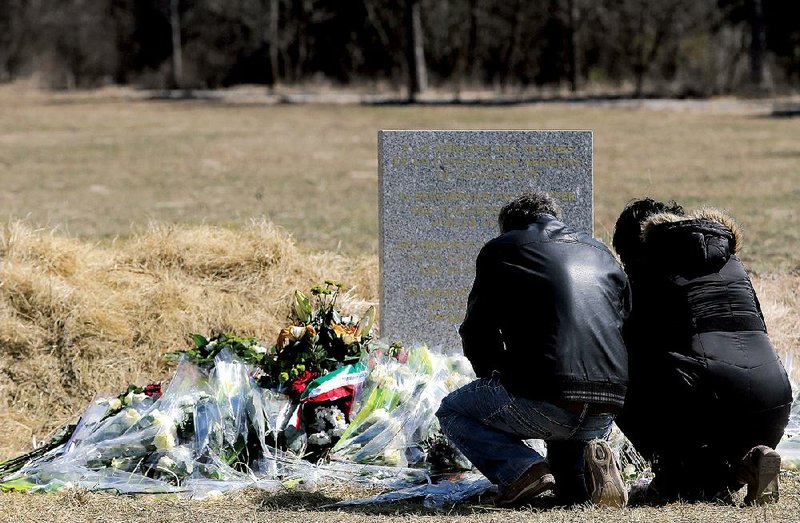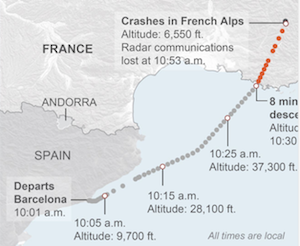DUESSELDORF, Germany -- Andreas Lubitz, the pilot who flew a Germanwings jetliner into the French Alps on Tuesday, had been given a mental-health diagnosis but kept the condition hidden from his employer, authorities said Friday.
Lubitz, a 27-year-old German, did not disclose his full medical record to Germanwings and its parent company, Lufthansa. Certain diagnoses are grounds for a pilot's license to be revoked.
Prosecutors said Friday that among items found at Lubitz's home were several doctors' notes stating that he was too ill to work, including on the day of the crash. One of the notes had been torn up.
The documents "support the preliminary assessment that the deceased hid his illness from his employer and colleagues," the prosecutors said in a statement.
But there remained considerable confusion about the precise nature and severity of his psychiatric condition. A German hospital said it had evaluated Lubitz twice in the past two months but added that he had not been there for assessment or treatment of depression.
The crash killed Lubitz and the other 149 people on board the Airbus A320 jetliner bound from Barcelona, Spain, to Duesseldorf on Tuesday morning.
German investigators said they had not found a suicide note or "any indication of a political or religious" nature among the documents from Lubitz's apartment.
"Documents were secured containing medical information that indicates an illness and corresponding treatment by doctors," Ralf Herrenbrueck, a spokesman for prosecutors in Duesseldorf, said in a statement.
The Federal Aviation Office of Germany said Friday that a medical certificate issued to Lubitz that allowed him to fly noted that he had a medical condition, although it did not specify whether it was related to a psychological problem.
The notes found in Lubitz's apartment were from different doctors, suggesting that he may have sought a second opinion for a recent diagnosis.
Duesseldorf University Hospital said in a statement Friday that Lubitz had been seen in February and a last time on March 10 for what it called a "diagnostic evaluation." The clinic refused to give further details, citing Germany's privacy laws for medical records, including those of the dead, but denied reports that the co-pilot had been treated for depression.
The clinic, a research hospital affiliated with Duesseldorf University, said it had handed Lubitz's medical records over to prosecutors.
Speculation about Lubitz's mental health had already set off a worldwide discussion among pilots, airlines and officials about how airlines worldwide screen their pilots and document potential physical or mental-health problems.
Martin Riecken, a spokesman for the Germanwings parent company, Lufthansa, said Friday that all of the company's pilots were examined at least once a year by doctors employed by the airline's own medical services unit, Lufthansa Aeromedical Services, in compliance with European pilot-licensing rules.
But as is the case with most airlines -- including those in the United States -- the annual checkup focuses mainly on physical fitness to fly, he said. Questions of psychological fitness are largely addressed with a questionnaire filled out by the pilots and signed on their honor.
"The questions are developed in coordination with the DLR," Riecken said, referring to Germany's national aeronautics and space research center. However, he said, the teams of doctors performing the exams do not normally include trained psychologists.
Riecken provided no details about Lubitz, citing German privacy rules.
On Thursday, the French prosecutor leading the investigation said the evidence from the cockpit voice recorder suggested that Lubitz, a former flight attendant with a passion for flying, had locked the pilot out of the cockpit and deliberately set the plane on a descent into the Alps.
The crash claimed victims from more than a dozen countries, including Germany, Spain and the United States.
Police officers and rescue workers on Friday continued to search the site of the crash for victims' remains, along with other clues and DNA that could help them identify those who died in the crash.
A Section on 03/28/2015

